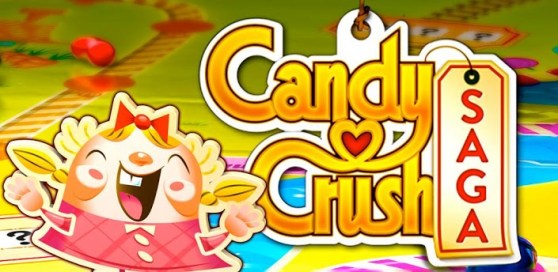This post has not been edited by the GamesBeat staff. Opinions by GamesBeat community writers do not necessarily reflect those of the staff.
King, a casual social games developer, recently decided to abandon in-game advertising, and considering my position with the NativeX Games Task Force (where we collaborate with mobile game developers to increase the engagement, retention, and monetization), this sparked a few questions and discussions in circles of people around me. Why is King doing this? What’s its motive? Were players leaving? Did King need a better ad experience? These are all good questions, but before addressing them specifically around King, let’s look at the two major groups of developers who don’t want or like ads. There might be more groups than this, but in my experience most developers fall into these two buckets.
Purist developers
I’ve encountered several developers who don’t want to break the 4th wall in their game designs. They’ve created stories and worlds where they feel players should immerse themselves, and advertisements would make players aware that it is just a game. I have a hard time believing this in mobile gaming, but I won’t argue that point against developers who feel this way.
There are also developers who believe that the game they are creating will be good enough that players will “want” to spend money in-game through in-app purchases (IAP). With those developers, I wish and hope that they’re right! I would hope that a game could achieve 100 percent conversion rate, 75 percent, or even 30 percent. Unfortunately, you’ll never have 100 percent conversion, and most developers won’t see more than 10 percent conversion in a free-to-play title just because one word is associated with their game: free. Some consumers have preconceived notions or assumptions with the word free, and game designers will never be able to change how those people feel about the word free.
Lastly in the purist category, there are some developers who think that advertisement revenues cannibalize their IAP revenues. This can be true but only if they slap ads into a game without thinking how to “intelligently” integrate advertisements. I can take any game and completely destroy it with advertisements. I think we all can, but you can also increase your revenues significantly with the addition of advertisements, too. That is … if you care for more revenue.
Elective developers
The other kind of developer who doesn’t use ads are those who have enough cash flow or resources and don’t feel the need to include advertising revenue or any other benefits associated with it. They can “elect” to include ads or not. Most of the time, this way of thinking spawns from great success, so it’s really difficult to criticize the decision to remove ads because they’re obviously doing something right being as successful as they are. If you haven’t guessed it yet, King falls under this category.
Many developers think of advertisements as a “necessary evil” in order to make a living out of doing something they love. On the flip-side, advertisers believe they are offering a service or product that the consumer values. Which is right? Well, that depends on the game, platform, and the consumer.
Let’s look at Hay Day, for example. My wife has been playing it for over a year and is level 60-something at the time of this writing. She has never made an IAP. She will never make an IAP. I asked her why, and her response was, “Because it’s free.” But she will watch videos for in-game currency. She actually likes to watch ads for currency. This is a case where a consumer finds value in an advertisement and the developer is benefiting from it as well. Of course, on the other end of the spectrum, 20-some-year-old hardcore players who only buy Call of Duty will hate advertisements. (OK, that’s sort of an extreme example, but I think you get the idea.)
You think I’m saying that King is making a mistake?
Not necessarily, but I believe there’s a role for advertisements in most games. I’ve seen the effects first hand from players who won’t spend; however, the data at my fingertips from the NativeX network and from the shift I’ve witnessed in the past few years shows the importance of advertising.
But this is sort of a win-win scenario for King. It’s successful, so advertising isn’t as important. It’s getting some press coverage for the announcement, and in the eyes of players, it looks like King is “doing good.”
Do I think this stance can last? That all depends on King’s future success. If it stays on top or keeps releasing hits, then yes. But if revenues start declining or it’s not meeting expectations, then King might reintroduce ads. There’s also always the possibility of reintroducing ads back in games that are “sunsetting,” so we could always see them pop back into games that aren’t in the spotlight anymore.
You can find more thoughts from me at my blog, the NativeX blog, or on Twitter.

